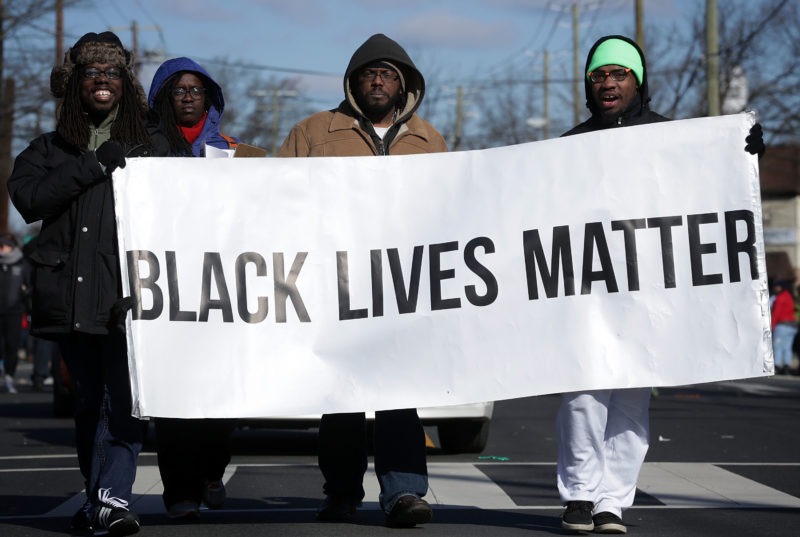Race of officer not a defining factor in US police shootings: study
A Black Lives Matter demonstration to protest police shootings of African-Americans (ALEX WONG)
Washington (AFP) – White police officers in the United States are not more likely to fatally shoot members of minority groups than black or Hispanic officers, according to a new study.
Recent police shootings of unarmed African-Americans have stirred outrage in the United States and led to the creation of the Black Lives Matter movement.
But a study of more than 900 fatal police-involved shootings in 2015 by researchers at Michigan State University (MSU) and the University of Maryland found “no evidence of anti-black or anti-Hispanic disparities across shootings.”
“We found no relation between the race of the police officer and the race of the person shot,” Joseph Cesario, an associate professor of psychology at MSU and the senior author of the report, told AFP.
“White police officers were not more likely to shoot black citizens than black police officers were.”
The study added: “This suggests that increasing diversity among officers by itself is unlikely to reduce racial disparity in police shootings.”
There is no national database on the officers involved in fatal police shootings, Cesario explained.
So for the study, the researchers used data compiled by The Guardian and The Washington Post.
Of the total number of victims, 26 percent were black. African-Americans make up 12 percent of the US population.
Researchers did find that the local crime rate within a given racial group strongly predicted the likelihood a person from that group would be shot.
“In any given county… the more violent crimes that were committed, let’s say by white citizens, the more it is predicted that a white citizen would be shot by the police,” Cesario said.
“If there are more crimes being committed by black citizens, that predicted a black citizen getting shot.”
For Cesario, the data showed that blacks were perhaps shot more often relative to their population “not because police officers are biased… it has to do with whom they are coming into contact with.”
“It’s an exposure question that is due to differences in violent crimes,” he said.
Cesario emphasized that the study, which was published in the Proceedings of the National Academy of Sciences, does not “incriminate or exonerate officers in any specific case.”
“Findings at the national level do not directly speak to the presence or absence of bias in individual shootings,” he said.
Disclaimer: Validity of the above story is for 7 Days from original date of publishing. Source: AFP.


